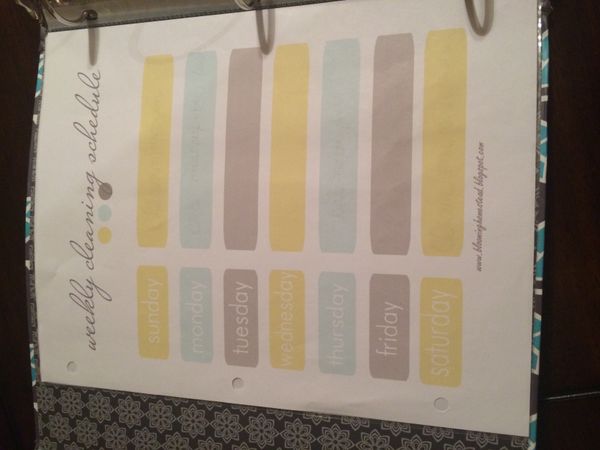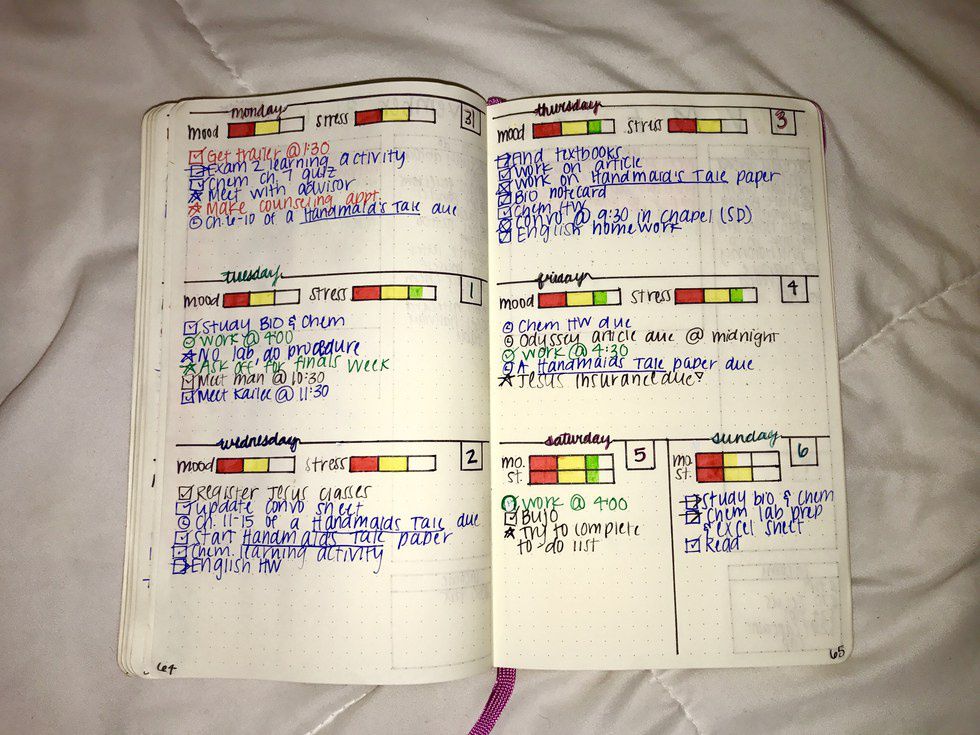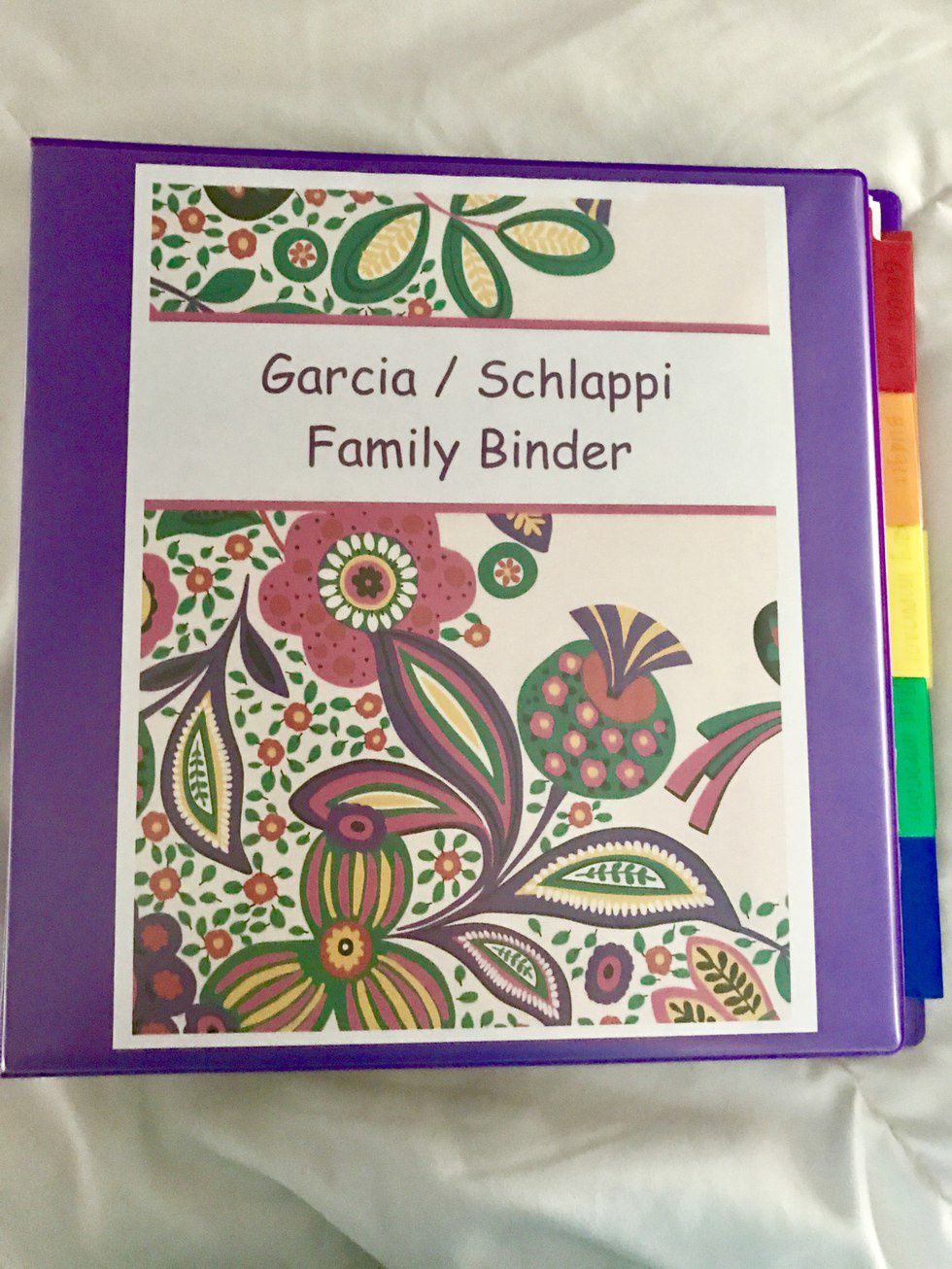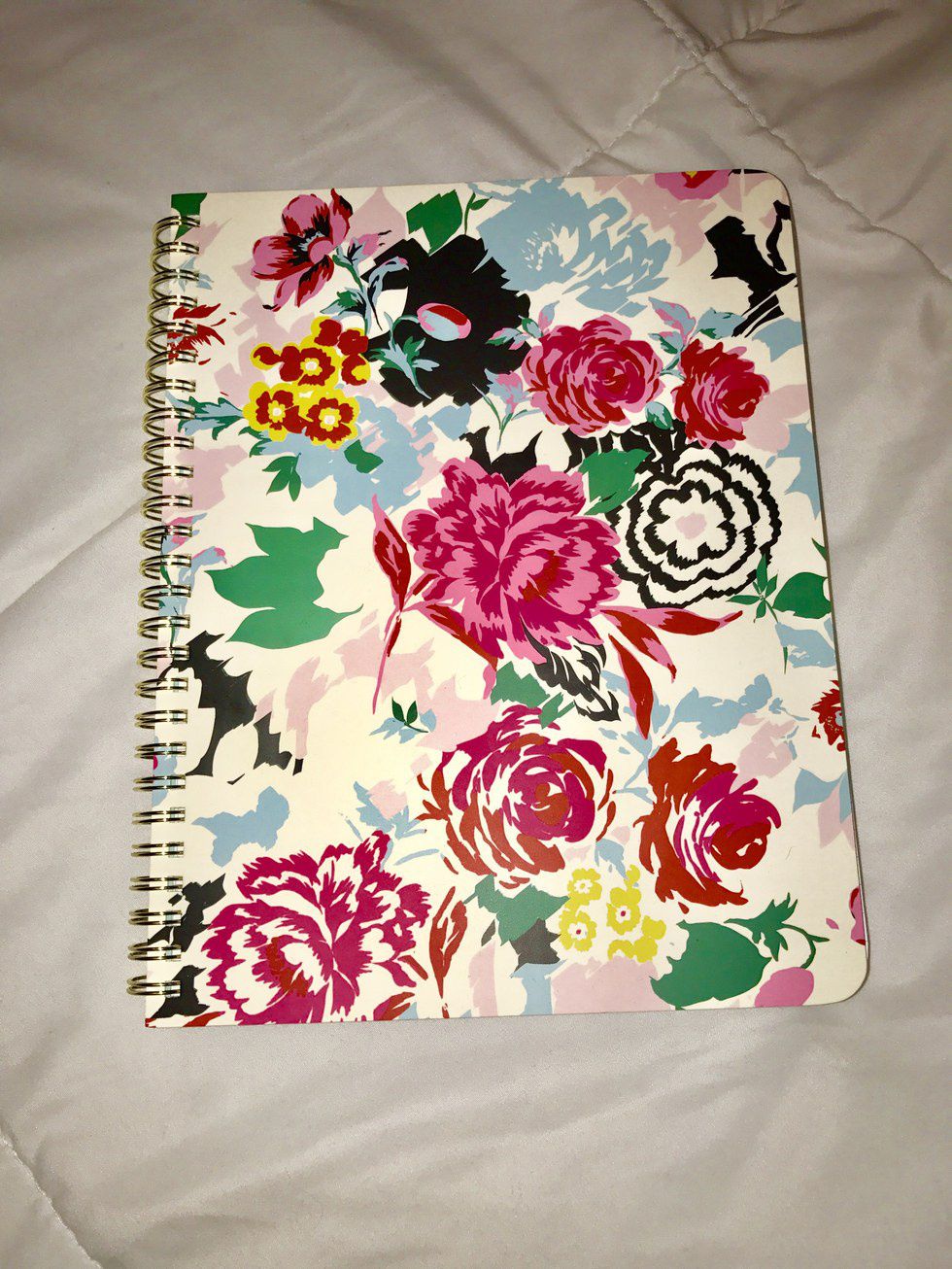With Thanksgiving now over and Christmas rapidly approaching (and I do mean rapidly), it leaves us all wondering how 2016 is almost at an end when we’re just now remembering to write the year correctly; and if you’re a college student, you’re probably pretty psyched about Christmas Break. It can be tough, however, to get excited for Christmas when the dreaded exam period is coming closer and closer. This is the time when life starts getting even more hectic than usual and stress is at its peak. However, there is hope for keeping your life in order and acing your exams, and it all lies in effective planning.
There are probably hundreds or even thousands of different ways to plan and organize, and whichever ones you choose to utilize completely depends on your personal preferences. I am going to share several ways I keep my life in order, but keep in mind it doesn’t matter what tools you use—the only thing that does matter is that you choose something that works well for you.
The Bullet Journal
My bullet journal is probably my favorite inanimate object. Without it, I would literally never be able to keep track of all of my appointments, tasks, and reminders; in short, my life would be a disaster. You can really make a bullet journal out of any kind of book, but I use a Large, Dotted Moleskine Classic Colored Notebook for mine, which is available on amazon here. It comes completely blank apart from a series of dots on each page (which work exceptionally well for keeping everything straight and organized). Basically, the first 15-20 pages of my journal are filled with different lists (goal sheets, books to read, places to travel, etc.), and the rest of the book is a filled with a hand-drawn planner that follows the basic format of most store-bought planners.
Creating the planner becomes a much more fun process when you use different styles and colors of pens or markers. I personally love the Staedtler Triplus Fineliner Pens for most of my writing and drawing, but I also use the Paper Mate Flair Felt Tip Pens when I want more of a marker look. None of the above materials are necessary for a planner, but I have found it makes scheduling much more pleasurable when you can add some creativity. That being said, any old notebook or cheap weekly planner with regular black pens would work. My only suggestion would be to always include some kind of goal sheet and to-do list, and to write down everything that will take up any amount of your time, big or small. That is the best way to make your planner an effective time-management tool.
The Life Binder
My life binder is pretty self-explanatory and also very new, so I'm still getting used to it myself. Pretty much any kind of important information is kept in here. This may not be necessary for anyone still living with their parents, but as I am only a few days from moving into my new house I felt as if it was an important asset to have.
In the front of my binder I have a general overview of information on all members of my household and our pets. Both of our vehicle descriptions are on here as well and a list of emergency contacts follows. Right behind that sheet is the bulk of my binder. Here is where I keep my budget, which basically consists of a projected and actual income and expense sheet along with a pie chart indicating how much income should be spent in each category. After that is a simple chart where I record every piece of income and every expense for each week. My budget plan is a good way to keep track of where my money is going and it also encourages me to start spending in a practical way.
After my budget I have important documents for my boyfriend and I—birth certificates, insurance information, passports, etc.—and then vet and insurance information for my pets. After that are any other documents that I need to keep track of including titles, receipts, contracts, school information, tax returns, and more. This binder is just a compressed filing cabinet for me, but it can also include less or more for someone who needs a place for family planning of any kind. Because this includes sensitive information, I would encourage keeping it in a secure place.
The Random Journal
Finally, my last tool I will share with you is probably more optional for some people or could fit into one or both of the tools mentioned above. I use a plain, spiral-bound, lined journal for this to keep track of basically everything that isn’t in my other books. It is really a compilation of random things more than an actual journal.
Some of the journal is used for actually writing down my thoughts and feelings. This can be a very therapeutic use for it if you’re going through a rough patch. It sounds corny, but it works. Other than that I like to write down any lists and any random ideas I don’t want to forget. I also have my bill tracker with the due date and minimum amount for my bills each month and my weekly house cleaning schedule.
Again, this isn’t necessary to keep. However, I am a perfectionist and it would kill me to put something out of place in my bullet journal or binder. This journal gives me a place to freely write and not worry about mistakes. If you’re like me, it would probably be a good idea to keep something like this. If you don’t mind having stray thoughts or lists, then you could just write everything in your planner. I used an actual journal for this but a regular spiral-bound notebook would be perfect for this also.
Personalizing Your Strategy
Everything I have listed works perfectly for me. However, everyone is different and, therefore, may need to use different strategies. I really want to stress this point, because when I first started planning, I tried to follow several different layouts and ideas that I got from bloggers on Pinterest and other websites. I ended up disliking something about all of them and felt like my journal was a failure. I eventually pulled all of the pieces that I favored from everything I tried and made my own version of a journal. That is probably your best bet, because you really want to enjoy doing this, otherwise it will become a chore that you dread doing.
Enjoying your organization strategy is necessary for my final piece of advice, and that is to be consistent. The journals don’t work if you’re not using them. It is important to write down EVERY piece of information that you will need to remember. Even if you think you will remember it without writing it down, you should do it anyway, because when your brain is overloaded during finals it is totally possible to forget that hair appointment you made months ago. And although this might seem impossible to do when you already have so much on your plate, you’d be surprised how much better you feel when everything is written down and planned out.
An organized life is a stress-free life.
























